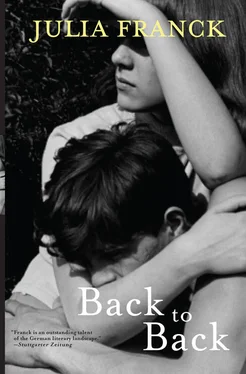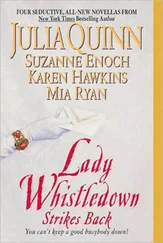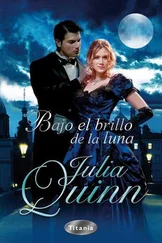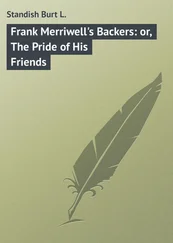Thomas apologised. In her eyes, his attempts must look clumsy, hesitant, awkward. He had never washed another human being before.
With the diabetic patients, the laboratory values entered on the charts had to be consulted, the dose of insulin was calculated to match them, and Marie injected it.
The second room also contained six men, one of whom had not been properly conscious for two weeks; three others would be dead by summer, although two of them would presumably be discharged and sent home before that. Three men lay in the third room; the fourth bed was empty because the patient was in surgery, having an incipient ulcer removed.
Thomas saw two nurses going along the corridor with a trolley. They were making their way to the ward. Marie and he had begun in the first room, the two nurses in the last room, and later they would meet and finish their round in the middle. Or almost finish it. Only the strong or particularly expensive medicinal drugs would be administered by Marie in the other rooms. The fourth room contained five men, and a sixth bed had been vacant since yesterday, because the patient had died.
What of?
Cancer, replied Marie. Most of the patients on our ward have cancer. Diseases seldom come alone. Diabetes goes along with kidney damage and kidney failure, kidney stones and strokes. The older the patients are, the tougher their bodies, the more diseases they accumulate.
When they reached the last room Marie said, in her soft, husky voice, that Thomas had already made good progress. She licked her lips. Only her eyes were smiling now, not a grimace, a sign that she felt close to him, Thomas believed. She had sensed that he didn’t want any pretence. Could he please, she asked, see to the last two patients on his own, because she had to hand out the medicinal drugs and write up entries in the card index and her poisons book. Marie explained what to do for the two men. One could walk, wash and shave himself, and he was to be discharged tomorrow. For the sake of routine, however, his temperature must be taken and he must be weighed without shoes on. The other man was still young, but as well as an ulcer he had a weak heart. Thomas was to help him wash, because he was too weak and careless to cleanse certain parts of his body properly. Thomas was to check his ears. Change his nightshirt. Make up the bed with clean linen, a job done much faster by two people synchronising their movements, and Marie promised to send him a nurse to help with it.
When you’ve finished, come to the front of the ward. You’ll be taking the meals round. It’s easy, the other nurses will show you how. At lunchtime I must write up the reports, but you can have a smoke with the other nurses, or eat your sandwiches if you brought any. After that we’ll see each other again. Marie pushed a loose strand of hair back under her cap and left the room. He felt that he was all alone. Did the patients know how new and inexperienced he was?
It was a moment before Thomas noticed the ribald remarks of the patients, and realised who was the butt of them. Hearing their conversation made him embarrassed; he didn’t feel that he belonged with these people.
At five, Marie went to sign off at the end of her shift. See you tomorrow, she said, shaking his hand. The other nurses giggled and cast him surreptitious glances. One showed him the door of the room where he could change. The nurses whispered, waved goodbye, and wished him a nice evening.
A little later, Thomas was sitting on the bench that stood on the broad path between the flower beds, smoking a cigarette. The tobacco gave him a pleasant sense of mild nausea; it occurred to him that he hadn’t eaten all day. The first blackbirds were singing in the clear February twilight. Thomas didn’t know how many ways out of the hospital there were, certainly there would be back doors and side doors, gates to let delivery vans in, access for ambulances and hearses. But he was sure that sooner or later Marie would have to come along this path. Signing off at the end of a shift couldn’t take hours. Maybe he would smoke two or three cigarettes. He had plenty of time.
Although it was nowhere near dark yet, the lights in the grounds flickered and came on.
Just before the end of her shift, Marie had been called into a room where a man was having breathing problems. Thomas had been expected to follow her. At her request he had opened the window, while the man struggled for air and breathed stertorously. Marie had bent over him, put an oxygen mask on him, and finally sent Thomas for the doctor. When he came back into the room with the doctor, the man had died. He had not been one of those expected to die in the coming days or weeks. A patient with a small cancerous tumour on his liver, it had been successfully operated on, with no sign that any vital organ was about to fail. Where had they taken the body? Thomas wondered.
Thomas lit another cigarette and blew smoke rings into the air. The light nearby dazzled him. He heard a scream from somewhere. Perhaps one of the patients was angry, perhaps he was afraid. A howling ray of light flowers in the cry, / when the ash flakes, / the last black egg breaks / shattered against the sky.
As long as someone could scream he wasn’t marked yet, wasn’t black yet. How many marks had he left on the thin man this morning? It seemed unreal to think that he had known Marie for only a few hours.
He put his head back, and closed his eyes. The smoke tickled his nose pleasantly.
Horror stifled us now / And the proud trees seem / in the great dream / under the blood-storm to bow. Barely moving his lips, he began again at the beginning, When the ash flakes, reciting and beating time with his foot on the paving stones. He stubbed his toe on the stones, and began adding another line. A second guessed at for a thousand years —. She must come now, he could feel that she was close. He sat upright and looked down the broad path towards the hospital in search of her.
He recognised her figure in the distance. She was on her own.
What are you doing, still here? She hardly smiled at all, she stopped not two metres away from him, her coat almost touching his knee. He was a boy, she was a woman.
He rubbed his eye with the back of his hand; the smoke stung. Throwing the cigarette on the ground, he trod it out.
I was waiting.
Yes? Her husky voice, the tenderness and certainty in it excited him. He didn’t have to answer the question in it. I could take you home, it’s getting dark.
She put her head on one side. Come along. She reached her hand out to him. No one had ever put a hand out to him like that before, just so that he could take it and walk part of the way with her. Now he was walking beside her, their hands clasped.
You can’t take me home, she said as they went along. They were both silent. She almost floated as she walked, as if she were gliding, in spite of the delicate heels clicking on the paving stones. A few metres before they reached the porter, she said even more softly than before: My husband is waiting for me. I must do some shopping now, collect my child from the crèche, and then I’ll go alone.
Go where?
To Friedrichshain. Home. To my husband. As they passed the porter, she took her hand out of his.
Thomas waited with her just outside the beam of the street light where it fell on the tramline. He could go with her as far as the Frankfurt Gate, where they would both change to different lines. He stood back for her to get in first, and put coins for their fares into the ticket machine. Then he turned the handle, which itself turned the compartments for the money, visible through the glass pane, as it fed out the tickets. The tops of the tickets fell out of the device with a slight rattle. Two tickets, one for her, one for him. The light in the tram made the shadows under her eyes look deeper. Her expression was weary and sad. They sat down on a vacant seat.
Читать дальше












